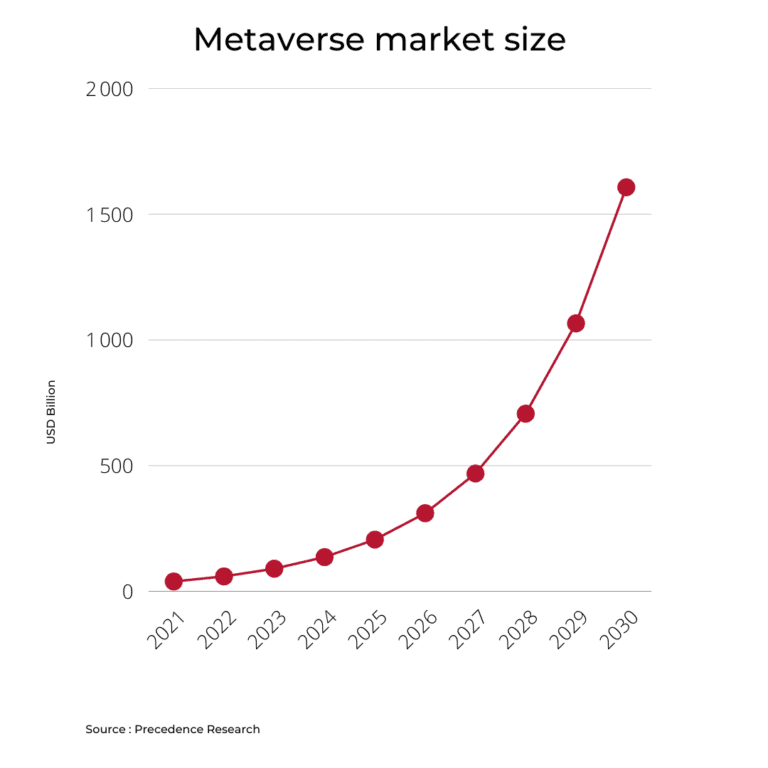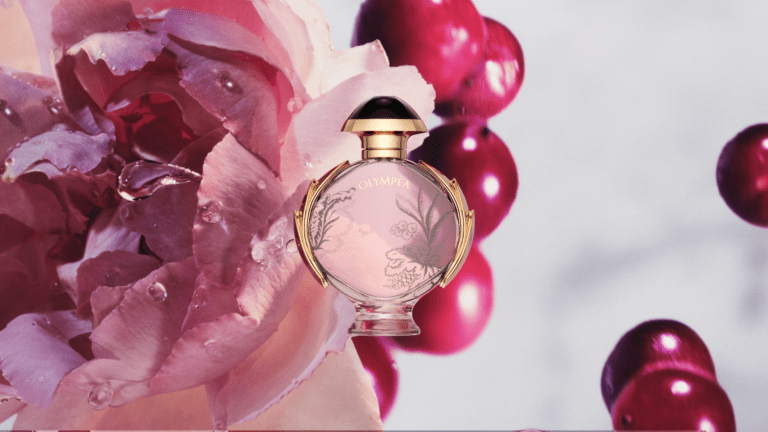The importance of 3D configurators for customer experience in the luxury industry
The importance of 3D configurators for customer experience in the luxury industry Table of Contents In the luxury industry, where attention to detail, exclusivity, and

The Metaverse and NFTs market has seen major eruptions since the fourth quarter of 2020. These topics were widely searched on Google during the peak of the COVID-19 pandemic.
“Last year, after we have been confined, the research about Metaverse grew a lot” affirmed Regina Soares Valverde, digital strategist at McCann Paris, during an interview we had the chance to organize, to guide us on a journey inside the Metaverse.

The global pandemic led to a fast pace adoption of the digital world. This transition to the digital realm saw many luxury brands in the foreground. Even if some of them initially were extremely skeptical about going digital, to be and stay connected with their audiences, it seemed a fundamental strategic move.
Among the different digital strategies, bitcoins, Metaverse, and NFTs were the most prominent ones. The term Metaverse which describes something between a virtual retail destination and a gaming platform has increasingly attracted the interest of businesses and consumers. To illustrate, by 2030, the value of the Metaverse is estimated to reach approximately $2 trillion [1].
For luxury brands, it translated into the creation of virtual spaces for their users, characterized by a sense of immersion, real-time interactivity, and the possibility for brand lovers to directly interact.
However, several luxury players that were dubious to join this realm. They realized that it represented a business case for them to invest in virtual realms. In fact, fashion companies focusing on Metaverse innovation and commercialization could generate more than 5% of revenues from virtual activities over the next two years [2].
Experiments by brands with Metaverse practices, such as virtual fashion, extended reality, gaming, and non-fungible tokens (NFTs), demonstrate the strength of virtual activities as marketing and community-building tools for luxury.

Brands can use NFTs to give holders privileges and benefits like freebies and exclusive access to new products. NFTs have extra features because of the blockchain technology behind them.
Regina provided us with 3 insightful examples of successful strategies of brands applying these digital collectibles :
• NFTs to reward consumers: during October 2021 the beauty brand Clinique developed a successful strategy to get closer to its consumer base. The brand elaborated a series of unique 3D NFTs to reward clients who keep on buying with them. Within this scenario, NFTs were exploited as prizes to reward consumers’ loyalty and to build a strong relationship with them.
• NFTs to make consumers feel unique: after the NFTs series realized to raise funds for the pandemic, the Italian luxury brand Gucci unlocked the power of NFTs to enhance exclusivity. Gucci’s NFTs holders now have access to a variety of benefits, such as collection pre-drops, tailored content, and one-of-a-kind events.
• NFTs to gain awareness: Hugo Boss realized 5 different NFTs for a TikTok challenge for the occasion of the Super Bowl. Millions of the brand’s followers participated in this challenge in order to gain a unique NFT. With this purpose in mind, NFTs were used in order to strengthen the brand clients’ relationship and leverage the power of the community.

The Metaverse represents a digital extension of everything’s real, including the high-quality level of details of luxury goods. Therefore, it will be important for luxury brands to maintain the same level of excellence in their products also in the digital world. They can reach this goal with the support of hyperrealistic 3D renderings.
Regina told us how vital it is for their clients to exploit premium quality virtual assets in their digital campaigns. She repeatedly emphasized how relevant it is for brands’ virtual strategies to give customers the same perception of high-end products as in the physical world. High-quality 3D assets help showcase the high standard of the brands in the online world.
SmartPixels is an expert in the creation of 3D hyperrealistic visuals also called digital twins. With our 3D visualization technology, luxury brands have experimented a remarkable overtaking of their clients’ visual expectations.
To exemplify, brands that substituted traditional product photography with 3D renders had seen a 40% upsurge in conversion rate and 30% growth in revenues.
The quality of our real-time photorealistic renderings distinguishes us. We can replicate every detail of the product, right down to its flaws, to make it as realistic as possible. Moreover, these visuals are implemented by our clients for a variety of purposes, including the generation of e-commerce 3D visuals, social media content creation, and content creation for CRM campaigns.
Augmented Reality feature in Prada LunaRossa digital activation
Finding a univocal definition of what is Metaverse is not an easy task. It has been widely unified as “the next iteration of the Internet”. However, evidence confirmed that it represents an advertising channel as well. In fact, rather than being something we just see, it has become something we are immersed in.
Therefore, 3D NFTs and Metaverse activations have started to become an integral part of luxury brands’ digital activations. To illustrate, 57% of companies, aware of the Metaverse, started to adopt it within their long-term strategies [3]. Regina explained how digital experiences like Augmented Reality and virtual try-on can help to bridge the gap between the offline and online worlds.
She worked on the development of the Prada Luna Rossa digital campaign. It aims to transpose the offline experience to the digital universe. The activation consisted of adding a QR code, which customers had to unlock.
As a result, the 3D rendering of the Luna Rossa bottle, present in the key visual, was transposed into an Augmented Reality experience. The outcome was substantial: the implementation of 3D digital assets as well as Augmented Reality technology determined a relevant boost in sales.
SmartPixels helps its client to develop Augmented Reality solutions for their high-end products. By the application of 3D digital twins in the AR experience, end-consumers are able to envision the item they wish to purchase, directly in their home, or, with virtual try-on, on their favorite outfits. In this way, they are reassured in their purchase decisions. Moreover, the 3D assets are portrayed in a 360° mode, which users can visualize extremely meticulously.
*Sources:
[1] The Precedence Research
[2] The State of Fashion Technology – McKinsey & Company x The Business of Fashion
[3] Value creation in the Metaverse – McKinsey & Company
The importance of 3D configurators for customer experience in the luxury industry Table of Contents In the luxury industry, where attention to detail, exclusivity, and
3D rendering vs 2D: what are the benefits of one over the other? Table of Contents 3D rendering offers a significant leap in realism compared
How do 3D product configurators reduce e-commerce returns? Table of Contents Overview of e-commerce product returns % of people who claim to retunr their online
Omnichannel strategy: the keys to a successful experience Chloé Tokyo store with a personalization experience created by SmartPixels The global pandemic has forced brands around
How AR helps luxury brands to build immersive experiences What is Augmented Reality? Augmented Reality solution by SmartPixels Augmented Reality is a technology that enables
Deep-dive into glTF file format During recent years, the glTF file format has gained more and more prominence, due to its functionality and the wide variety